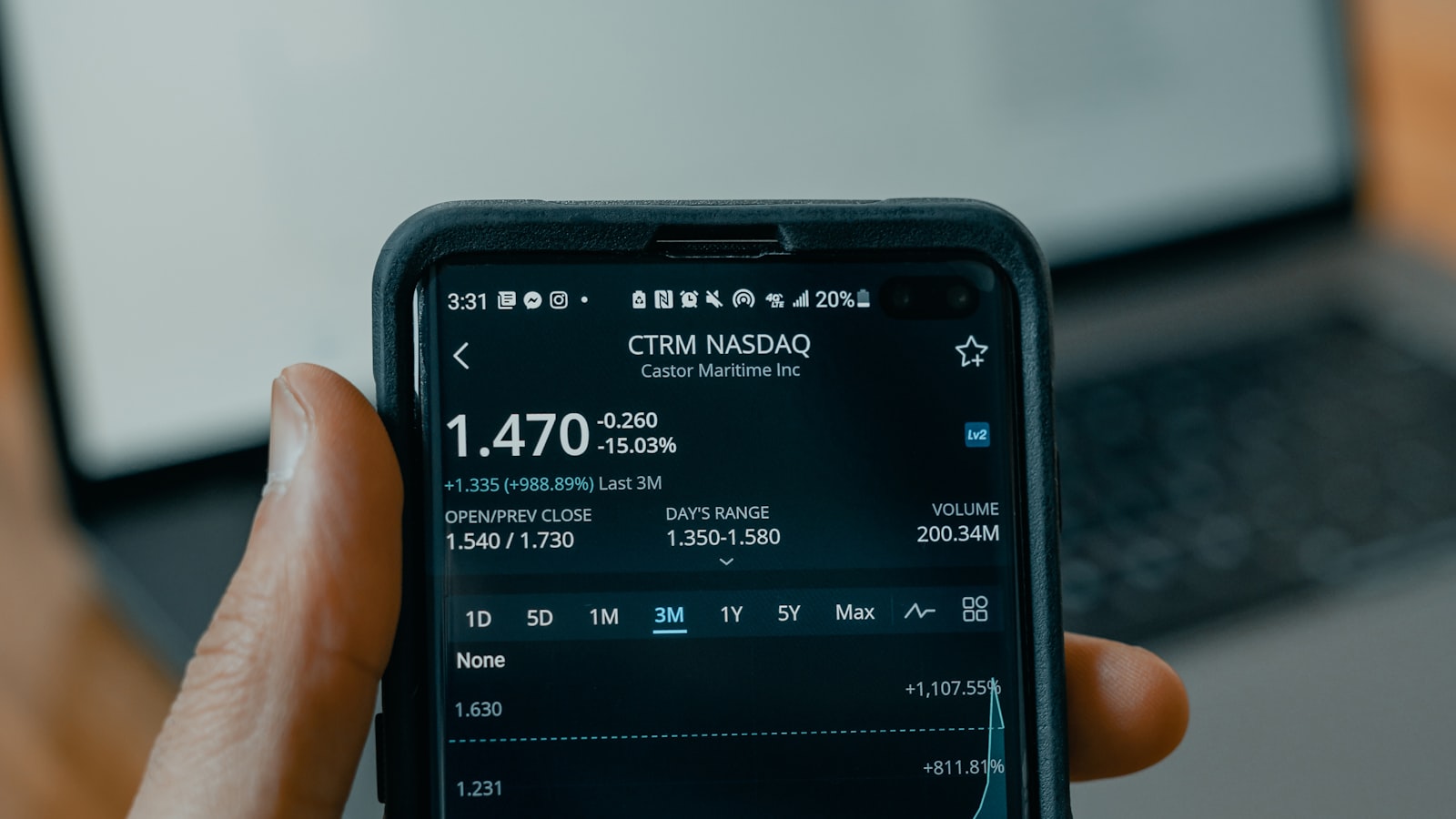Predictions for the Future of Programmatic SEO in Ecommerce
Predictions for the Future of Programmatic SEO in Ecommerce
Predictions for the Future of Programmatic SEO in Ecommerce
Explore the future of programmatic SEO in ecommerce with expert predictions, trends, and strategies to stay ahead in the competitive digital marketplace.
Explore the future of programmatic SEO in ecommerce with expert predictions, trends, and strategies to stay ahead in the competitive digital marketplace.



Predictions for the Future of Programmatic SEO in Ecommerce
Introduction to Programmatic SEO in Ecommerce
Imagine a future where ecommerce businesses can predict and adapt to search engine algorithms with pinpoint accuracy, driving unprecedented traffic and sales. This is the promise of programmatic SEO, an emerging field that combines data analytics, AI, and automation to optimize search engine performance in real-time. As we stand on the brink of this new era, understanding the future of programmatic SEO is crucial for staying ahead in the competitive ecommerce landscape.
What is Programmatic SEO?
Programmatic SEO refers to the use of automated systems and algorithms to manage and optimize search engine optimization efforts. Unlike traditional SEO, which relies heavily on manual processes and intuition, programmatic SEO leverages machine learning and data analytics to make informed decisions. This approach allows ecommerce businesses to scale their SEO strategies efficiently, targeting the right keywords and optimizing content dynamically based on real-time data.
The Evolution of SEO in Ecommerce
The journey of SEO in ecommerce has been transformative. Initially, it was all about keyword stuffing and backlink building. However, as search engine algorithms became more sophisticated, the focus shifted to quality content and user experience. Today, with the advent of AI and big data, the field is poised for another revolution. The future of programmatic SEO in ecommerce promises to be data-driven, automated, and incredibly precise, offering new opportunities for businesses to enhance their online visibility and revenue.
In this article, Dr. Evelyn Hartman, an expert in programmatic SEO and ecommerce trends, shares her predictions for the future of this exciting field. From AI-driven content creation to real-time keyword optimization, discover how programmatic SEO is set to reshape the ecommerce industry.
Current State of Programmatic SEO in Ecommerce
How Programmatic SEO Works
Programmatic SEO automates and scales the optimization process for ecommerce websites, making it particularly effective for large online retailers with extensive product listings. Here’s a breakdown of how it works:
Automated Content Generation: AI tools create relevant and unique content for product pages, ensuring each page is optimized for search engines.
Dynamic Keyword Optimization: Keywords are continuously updated based on current trends and user search behavior, keeping the content fresh and relevant.
Structured Data and Schema Markup: This enhances search results by providing detailed product information, improving visibility and click-through rates.
Site Architecture Optimization: Ensures intuitive navigation and efficient internal linking, making it easier for search engines to crawl and index the site.
Automated Meta Tagging: Generates consistent meta tags across all product pages, contributing to better search engine rankings.
Performance Analytics and Reporting: Tracks SEO performance, allowing for data-driven decisions to improve strategies continuously.
Examples of Successful Implementations
Several ecommerce giants have successfully implemented programmatic SEO, showcasing its effectiveness:
Amazon: Utilizes AI-driven content generation and dynamic keyword optimization to ensure millions of product pages are always optimized for search engines.
Walmart: Employs structured data and schema markup to enhance search results, making it easier for customers to find products through search engines.
eBay: Uses automated meta tagging and internal link management to maintain a high level of SEO performance across its vast inventory.
These examples highlight how programmatic SEO can drive significant traffic and sales by automating and scaling SEO efforts.
Benefits Over Traditional SEO
Programmatic SEO offers several advantages over traditional SEO methods, particularly for large ecommerce sites:
Scalability: Automates the optimization of thousands of product pages, which would be impractical with manual methods.
Real-Time Adjustments: Adapts to user search trends and seasonal fluctuations, ensuring content is always aligned with current demand.
Consistency: Reduces human error and ensures uniformity across all pages, enhancing the overall quality of the site.
Improved Long-Tail Keyword Ranking: Targets niche keywords more effectively, driving more specific and high-intent traffic.
Enhanced User Experience: Optimizes site structure and content, making navigation easier and more intuitive for users.
By leveraging these benefits, ecommerce businesses can significantly enhance their online visibility, attract more organic traffic, and ultimately drive higher sales.

For more insights on SEO strategies, you can explore resources from Moz Blog, Shopify Blog, and TechCrunch.
Key Predictions for the Future of Programmatic SEO
1. Increased Use of AI and Machine Learning
The future of programmatic SEO will see a significant rise in the use of AI and machine learning. These technologies will streamline various aspects of SEO, from keyword research to content creation and real-time adjustments. For instance, AI can analyze vast amounts of data to identify trends and opportunities, making SEO strategies more data-driven and efficient.
AI-powered tools like Moz and Ahrefs are already making strides in this area, helping businesses optimize their SEO efforts with greater precision.
2. Greater Focus on User Experience
User experience (UX) will become a cornerstone of programmatic SEO. Search engines are increasingly prioritizing websites that offer a seamless, intuitive experience. This means faster load times, mobile-friendly designs, and high-quality, engaging content. Businesses that invest in UX will likely see better rankings and higher conversion rates.
Resources like the Shopify Blog provide valuable insights on enhancing UX in ecommerce, which can be crucial for staying competitive.
3. Expansion into New Ecommerce Niches
As programmatic SEO becomes more sophisticated, it will expand into new ecommerce niches. Smaller, specialized markets will benefit from targeted SEO strategies that can quickly adapt to niche-specific trends and consumer behaviors. This expansion will open up new opportunities for businesses to reach untapped audiences.
For more on ecommerce trends, the BigCommerce Blog is an excellent resource for staying updated.
4. Enhanced Personalization and Targeting
Personalization will be a key factor in the future of programmatic SEO. By leveraging data analytics, businesses can create highly personalized content that resonates with individual users. This approach not only improves user engagement but also increases the likelihood of conversions.
Advanced tools and technologies will enable more precise targeting, ensuring that the right content reaches the right audience at the right time. For insights on advanced targeting strategies, consider checking out articles on Search Engine Journal.
5. Integration with Voice Search and Virtual Assistants
Voice search and virtual assistants are becoming increasingly popular, and their integration into programmatic SEO is inevitable. As more consumers use devices like Amazon Echo and Google Home to search for products and services, businesses will need to optimize their content for voice queries. This involves focusing on natural language and long-tail keywords that match conversational search patterns.
For more on the impact of voice search on SEO, the Search Engine Land blog offers valuable insights and strategies.

How to Prepare Your Ecommerce Business for the Future

Conducting Comprehensive Keyword Research
Keyword research remains a cornerstone of any successful SEO strategy. To stay ahead, it's crucial to identify keywords that not only have a high search volume but also align with user intent. Utilize tools like Moz and Ahrefs to uncover valuable keywords.
Long-Tail Keywords: Focus on long-tail keywords that are more specific and less competitive.
Competitor Analysis: Analyze your competitors' keywords to find gaps and opportunities.
Trend Monitoring: Keep an eye on emerging trends to stay relevant.
Creating High-Quality, Scalable Content
Content is king, but scalability is queen. High-quality, scalable content can drive traffic and improve your SEO rankings. Here are some strategies:
Content Clusters: Create clusters of related content to cover topics comprehensively.
User-Generated Content: Encourage reviews and testimonials to add credibility and fresh content.
Evergreen Content: Focus on content that remains relevant over time.
For more insights on content strategies, check out the Shopify Blog.
Leveraging Advanced Tools and Technologies
Advanced tools and technologies can significantly enhance your SEO efforts. From AI-driven analytics to automated reporting, these tools can provide a competitive edge.
AI Analytics: Use AI to analyze user behavior and optimize your content accordingly.
SEO Automation: Automate repetitive tasks like keyword tracking and reporting.
Voice Search Optimization: Optimize for voice search to capture a growing segment of users.
For more on leveraging technology, explore articles on TechCrunch.
Building a Robust Link-Building Strategy
Link-building remains a critical component of SEO. Building a robust strategy can help improve your domain authority and search rankings.
Guest Blogging: Write guest posts on reputable sites to earn high-quality backlinks.
Influencer Outreach: Collaborate with influencers to gain more visibility and backlinks.
Internal Linking: Optimize your internal linking structure to improve navigation and SEO.
For more link-building strategies, visit the Search Engine Journal.
Preparing your ecommerce business for the future involves a multi-faceted approach. By conducting comprehensive keyword research, creating high-quality, scalable content, leveraging advanced tools, and building a robust link-building strategy, you can position your business for long-term success.
Challenges and Considerations
Potential Risks and Pitfalls
Programmatic SEO offers numerous benefits, but it also comes with its own set of challenges. One of the primary risks is over-automation. While automation can save time, relying too heavily on it can lead to generic content that lacks the human touch. This can result in lower engagement and higher bounce rates.
Another pitfall is the potential for technical issues. Automated systems can sometimes produce errors, such as broken links or duplicate content, which can negatively impact your site's SEO performance. Regular monitoring and audits are essential to catch and correct these issues promptly.
Lastly, there's the risk of data privacy concerns. Collecting and using large amounts of data for SEO purposes can raise privacy issues, especially with increasing regulations like GDPR. It's crucial to handle data responsibly and transparently.
Adapting to Algorithm Changes
Search engine algorithms are constantly evolving, and keeping up with these changes is a significant challenge. Algorithms like Google's are updated frequently, sometimes with little warning. These updates can drastically impact your site's ranking, making it essential to stay informed and adaptable.
One effective strategy is to follow reputable SEO blogs and news sites. Resources like Moz Blog and Search Engine Journal provide valuable insights and updates on algorithm changes. Additionally, leveraging advanced SEO tools can help you analyze the impact of these updates and adjust your strategies accordingly.
It's also beneficial to adopt a flexible SEO strategy that focuses on long-term goals rather than short-term gains. This includes creating high-quality content, building a robust link-building strategy, and continuously optimizing your site for user experience.
Ensuring Ethical SEO Practices
Ethical SEO practices are crucial for maintaining the integrity of your ecommerce business. Black hat techniques, such as keyword stuffing, cloaking, and buying backlinks, may offer short-term gains but can result in severe penalties from search engines. These practices can damage your site's reputation and lead to a loss of trust among your audience.
To ensure ethical SEO, focus on creating valuable, user-centric content. This means understanding your audience's needs and delivering content that meets those needs effectively. Additionally, transparent and honest link-building practices, such as guest blogging and partnerships, can help build a strong and ethical backlink profile.
It's also essential to stay updated on SEO guidelines and best practices. Organizations like Gartner and Forrester provide valuable resources that can help you stay informed and compliant with the latest SEO standards.

Conclusion
Recap of Key Points
As we look back at the journey through the future of programmatic SEO in ecommerce, several key points stand out:
Increased Use of AI and Machine Learning: These technologies will play a pivotal role in automating and optimizing SEO strategies.
Greater Focus on User Experience: Enhancing user experience will become a central aspect of SEO, influencing rankings and customer satisfaction.
Expansion into New Ecommerce Niches: Programmatic SEO will extend its reach into specialized ecommerce sectors, offering tailored solutions.
Enhanced Personalization and Targeting: More precise targeting and personalized content will drive engagement and conversions.
Integration with Voice Search and Virtual Assistants: As voice search grows, optimizing for virtual assistants will become crucial.
Final Thoughts on the Future of Programmatic SEO
The future of programmatic SEO in ecommerce is filled with opportunities and challenges. As AI and machine learning technologies evolve, they will enable more sophisticated and efficient SEO strategies. The emphasis on user experience and personalization will not only improve search rankings but also enhance customer satisfaction and loyalty.
Businesses should stay ahead by investing in advanced tools and technologies, conducting comprehensive keyword research, and creating high-quality, scalable content. Additionally, building a robust link-building strategy will remain essential for maintaining and improving search visibility.
For further insights and predictions on SEO trends, consider exploring resources from reputable sources such as Moz Blog, Search Engine Journal, and Search Engine Land. Staying informed and adaptable will be key to navigating the evolving landscape of programmatic SEO in ecommerce.

Predictions for the Future of Programmatic SEO in Ecommerce
Introduction to Programmatic SEO in Ecommerce
Imagine a future where ecommerce businesses can predict and adapt to search engine algorithms with pinpoint accuracy, driving unprecedented traffic and sales. This is the promise of programmatic SEO, an emerging field that combines data analytics, AI, and automation to optimize search engine performance in real-time. As we stand on the brink of this new era, understanding the future of programmatic SEO is crucial for staying ahead in the competitive ecommerce landscape.
What is Programmatic SEO?
Programmatic SEO refers to the use of automated systems and algorithms to manage and optimize search engine optimization efforts. Unlike traditional SEO, which relies heavily on manual processes and intuition, programmatic SEO leverages machine learning and data analytics to make informed decisions. This approach allows ecommerce businesses to scale their SEO strategies efficiently, targeting the right keywords and optimizing content dynamically based on real-time data.
The Evolution of SEO in Ecommerce
The journey of SEO in ecommerce has been transformative. Initially, it was all about keyword stuffing and backlink building. However, as search engine algorithms became more sophisticated, the focus shifted to quality content and user experience. Today, with the advent of AI and big data, the field is poised for another revolution. The future of programmatic SEO in ecommerce promises to be data-driven, automated, and incredibly precise, offering new opportunities for businesses to enhance their online visibility and revenue.
In this article, Dr. Evelyn Hartman, an expert in programmatic SEO and ecommerce trends, shares her predictions for the future of this exciting field. From AI-driven content creation to real-time keyword optimization, discover how programmatic SEO is set to reshape the ecommerce industry.
Current State of Programmatic SEO in Ecommerce
How Programmatic SEO Works
Programmatic SEO automates and scales the optimization process for ecommerce websites, making it particularly effective for large online retailers with extensive product listings. Here’s a breakdown of how it works:
Automated Content Generation: AI tools create relevant and unique content for product pages, ensuring each page is optimized for search engines.
Dynamic Keyword Optimization: Keywords are continuously updated based on current trends and user search behavior, keeping the content fresh and relevant.
Structured Data and Schema Markup: This enhances search results by providing detailed product information, improving visibility and click-through rates.
Site Architecture Optimization: Ensures intuitive navigation and efficient internal linking, making it easier for search engines to crawl and index the site.
Automated Meta Tagging: Generates consistent meta tags across all product pages, contributing to better search engine rankings.
Performance Analytics and Reporting: Tracks SEO performance, allowing for data-driven decisions to improve strategies continuously.
Examples of Successful Implementations
Several ecommerce giants have successfully implemented programmatic SEO, showcasing its effectiveness:
Amazon: Utilizes AI-driven content generation and dynamic keyword optimization to ensure millions of product pages are always optimized for search engines.
Walmart: Employs structured data and schema markup to enhance search results, making it easier for customers to find products through search engines.
eBay: Uses automated meta tagging and internal link management to maintain a high level of SEO performance across its vast inventory.
These examples highlight how programmatic SEO can drive significant traffic and sales by automating and scaling SEO efforts.
Benefits Over Traditional SEO
Programmatic SEO offers several advantages over traditional SEO methods, particularly for large ecommerce sites:
Scalability: Automates the optimization of thousands of product pages, which would be impractical with manual methods.
Real-Time Adjustments: Adapts to user search trends and seasonal fluctuations, ensuring content is always aligned with current demand.
Consistency: Reduces human error and ensures uniformity across all pages, enhancing the overall quality of the site.
Improved Long-Tail Keyword Ranking: Targets niche keywords more effectively, driving more specific and high-intent traffic.
Enhanced User Experience: Optimizes site structure and content, making navigation easier and more intuitive for users.
By leveraging these benefits, ecommerce businesses can significantly enhance their online visibility, attract more organic traffic, and ultimately drive higher sales.

For more insights on SEO strategies, you can explore resources from Moz Blog, Shopify Blog, and TechCrunch.
Key Predictions for the Future of Programmatic SEO
1. Increased Use of AI and Machine Learning
The future of programmatic SEO will see a significant rise in the use of AI and machine learning. These technologies will streamline various aspects of SEO, from keyword research to content creation and real-time adjustments. For instance, AI can analyze vast amounts of data to identify trends and opportunities, making SEO strategies more data-driven and efficient.
AI-powered tools like Moz and Ahrefs are already making strides in this area, helping businesses optimize their SEO efforts with greater precision.
2. Greater Focus on User Experience
User experience (UX) will become a cornerstone of programmatic SEO. Search engines are increasingly prioritizing websites that offer a seamless, intuitive experience. This means faster load times, mobile-friendly designs, and high-quality, engaging content. Businesses that invest in UX will likely see better rankings and higher conversion rates.
Resources like the Shopify Blog provide valuable insights on enhancing UX in ecommerce, which can be crucial for staying competitive.
3. Expansion into New Ecommerce Niches
As programmatic SEO becomes more sophisticated, it will expand into new ecommerce niches. Smaller, specialized markets will benefit from targeted SEO strategies that can quickly adapt to niche-specific trends and consumer behaviors. This expansion will open up new opportunities for businesses to reach untapped audiences.
For more on ecommerce trends, the BigCommerce Blog is an excellent resource for staying updated.
4. Enhanced Personalization and Targeting
Personalization will be a key factor in the future of programmatic SEO. By leveraging data analytics, businesses can create highly personalized content that resonates with individual users. This approach not only improves user engagement but also increases the likelihood of conversions.
Advanced tools and technologies will enable more precise targeting, ensuring that the right content reaches the right audience at the right time. For insights on advanced targeting strategies, consider checking out articles on Search Engine Journal.
5. Integration with Voice Search and Virtual Assistants
Voice search and virtual assistants are becoming increasingly popular, and their integration into programmatic SEO is inevitable. As more consumers use devices like Amazon Echo and Google Home to search for products and services, businesses will need to optimize their content for voice queries. This involves focusing on natural language and long-tail keywords that match conversational search patterns.
For more on the impact of voice search on SEO, the Search Engine Land blog offers valuable insights and strategies.

How to Prepare Your Ecommerce Business for the Future

Conducting Comprehensive Keyword Research
Keyword research remains a cornerstone of any successful SEO strategy. To stay ahead, it's crucial to identify keywords that not only have a high search volume but also align with user intent. Utilize tools like Moz and Ahrefs to uncover valuable keywords.
Long-Tail Keywords: Focus on long-tail keywords that are more specific and less competitive.
Competitor Analysis: Analyze your competitors' keywords to find gaps and opportunities.
Trend Monitoring: Keep an eye on emerging trends to stay relevant.
Creating High-Quality, Scalable Content
Content is king, but scalability is queen. High-quality, scalable content can drive traffic and improve your SEO rankings. Here are some strategies:
Content Clusters: Create clusters of related content to cover topics comprehensively.
User-Generated Content: Encourage reviews and testimonials to add credibility and fresh content.
Evergreen Content: Focus on content that remains relevant over time.
For more insights on content strategies, check out the Shopify Blog.
Leveraging Advanced Tools and Technologies
Advanced tools and technologies can significantly enhance your SEO efforts. From AI-driven analytics to automated reporting, these tools can provide a competitive edge.
AI Analytics: Use AI to analyze user behavior and optimize your content accordingly.
SEO Automation: Automate repetitive tasks like keyword tracking and reporting.
Voice Search Optimization: Optimize for voice search to capture a growing segment of users.
For more on leveraging technology, explore articles on TechCrunch.
Building a Robust Link-Building Strategy
Link-building remains a critical component of SEO. Building a robust strategy can help improve your domain authority and search rankings.
Guest Blogging: Write guest posts on reputable sites to earn high-quality backlinks.
Influencer Outreach: Collaborate with influencers to gain more visibility and backlinks.
Internal Linking: Optimize your internal linking structure to improve navigation and SEO.
For more link-building strategies, visit the Search Engine Journal.
Preparing your ecommerce business for the future involves a multi-faceted approach. By conducting comprehensive keyword research, creating high-quality, scalable content, leveraging advanced tools, and building a robust link-building strategy, you can position your business for long-term success.
Challenges and Considerations
Potential Risks and Pitfalls
Programmatic SEO offers numerous benefits, but it also comes with its own set of challenges. One of the primary risks is over-automation. While automation can save time, relying too heavily on it can lead to generic content that lacks the human touch. This can result in lower engagement and higher bounce rates.
Another pitfall is the potential for technical issues. Automated systems can sometimes produce errors, such as broken links or duplicate content, which can negatively impact your site's SEO performance. Regular monitoring and audits are essential to catch and correct these issues promptly.
Lastly, there's the risk of data privacy concerns. Collecting and using large amounts of data for SEO purposes can raise privacy issues, especially with increasing regulations like GDPR. It's crucial to handle data responsibly and transparently.
Adapting to Algorithm Changes
Search engine algorithms are constantly evolving, and keeping up with these changes is a significant challenge. Algorithms like Google's are updated frequently, sometimes with little warning. These updates can drastically impact your site's ranking, making it essential to stay informed and adaptable.
One effective strategy is to follow reputable SEO blogs and news sites. Resources like Moz Blog and Search Engine Journal provide valuable insights and updates on algorithm changes. Additionally, leveraging advanced SEO tools can help you analyze the impact of these updates and adjust your strategies accordingly.
It's also beneficial to adopt a flexible SEO strategy that focuses on long-term goals rather than short-term gains. This includes creating high-quality content, building a robust link-building strategy, and continuously optimizing your site for user experience.
Ensuring Ethical SEO Practices
Ethical SEO practices are crucial for maintaining the integrity of your ecommerce business. Black hat techniques, such as keyword stuffing, cloaking, and buying backlinks, may offer short-term gains but can result in severe penalties from search engines. These practices can damage your site's reputation and lead to a loss of trust among your audience.
To ensure ethical SEO, focus on creating valuable, user-centric content. This means understanding your audience's needs and delivering content that meets those needs effectively. Additionally, transparent and honest link-building practices, such as guest blogging and partnerships, can help build a strong and ethical backlink profile.
It's also essential to stay updated on SEO guidelines and best practices. Organizations like Gartner and Forrester provide valuable resources that can help you stay informed and compliant with the latest SEO standards.

Conclusion
Recap of Key Points
As we look back at the journey through the future of programmatic SEO in ecommerce, several key points stand out:
Increased Use of AI and Machine Learning: These technologies will play a pivotal role in automating and optimizing SEO strategies.
Greater Focus on User Experience: Enhancing user experience will become a central aspect of SEO, influencing rankings and customer satisfaction.
Expansion into New Ecommerce Niches: Programmatic SEO will extend its reach into specialized ecommerce sectors, offering tailored solutions.
Enhanced Personalization and Targeting: More precise targeting and personalized content will drive engagement and conversions.
Integration with Voice Search and Virtual Assistants: As voice search grows, optimizing for virtual assistants will become crucial.
Final Thoughts on the Future of Programmatic SEO
The future of programmatic SEO in ecommerce is filled with opportunities and challenges. As AI and machine learning technologies evolve, they will enable more sophisticated and efficient SEO strategies. The emphasis on user experience and personalization will not only improve search rankings but also enhance customer satisfaction and loyalty.
Businesses should stay ahead by investing in advanced tools and technologies, conducting comprehensive keyword research, and creating high-quality, scalable content. Additionally, building a robust link-building strategy will remain essential for maintaining and improving search visibility.
For further insights and predictions on SEO trends, consider exploring resources from reputable sources such as Moz Blog, Search Engine Journal, and Search Engine Land. Staying informed and adaptable will be key to navigating the evolving landscape of programmatic SEO in ecommerce.

Predictions for the Future of Programmatic SEO in Ecommerce
Introduction to Programmatic SEO in Ecommerce
Imagine a future where ecommerce businesses can predict and adapt to search engine algorithms with pinpoint accuracy, driving unprecedented traffic and sales. This is the promise of programmatic SEO, an emerging field that combines data analytics, AI, and automation to optimize search engine performance in real-time. As we stand on the brink of this new era, understanding the future of programmatic SEO is crucial for staying ahead in the competitive ecommerce landscape.
What is Programmatic SEO?
Programmatic SEO refers to the use of automated systems and algorithms to manage and optimize search engine optimization efforts. Unlike traditional SEO, which relies heavily on manual processes and intuition, programmatic SEO leverages machine learning and data analytics to make informed decisions. This approach allows ecommerce businesses to scale their SEO strategies efficiently, targeting the right keywords and optimizing content dynamically based on real-time data.
The Evolution of SEO in Ecommerce
The journey of SEO in ecommerce has been transformative. Initially, it was all about keyword stuffing and backlink building. However, as search engine algorithms became more sophisticated, the focus shifted to quality content and user experience. Today, with the advent of AI and big data, the field is poised for another revolution. The future of programmatic SEO in ecommerce promises to be data-driven, automated, and incredibly precise, offering new opportunities for businesses to enhance their online visibility and revenue.
In this article, Dr. Evelyn Hartman, an expert in programmatic SEO and ecommerce trends, shares her predictions for the future of this exciting field. From AI-driven content creation to real-time keyword optimization, discover how programmatic SEO is set to reshape the ecommerce industry.
Current State of Programmatic SEO in Ecommerce
How Programmatic SEO Works
Programmatic SEO automates and scales the optimization process for ecommerce websites, making it particularly effective for large online retailers with extensive product listings. Here’s a breakdown of how it works:
Automated Content Generation: AI tools create relevant and unique content for product pages, ensuring each page is optimized for search engines.
Dynamic Keyword Optimization: Keywords are continuously updated based on current trends and user search behavior, keeping the content fresh and relevant.
Structured Data and Schema Markup: This enhances search results by providing detailed product information, improving visibility and click-through rates.
Site Architecture Optimization: Ensures intuitive navigation and efficient internal linking, making it easier for search engines to crawl and index the site.
Automated Meta Tagging: Generates consistent meta tags across all product pages, contributing to better search engine rankings.
Performance Analytics and Reporting: Tracks SEO performance, allowing for data-driven decisions to improve strategies continuously.
Examples of Successful Implementations
Several ecommerce giants have successfully implemented programmatic SEO, showcasing its effectiveness:
Amazon: Utilizes AI-driven content generation and dynamic keyword optimization to ensure millions of product pages are always optimized for search engines.
Walmart: Employs structured data and schema markup to enhance search results, making it easier for customers to find products through search engines.
eBay: Uses automated meta tagging and internal link management to maintain a high level of SEO performance across its vast inventory.
These examples highlight how programmatic SEO can drive significant traffic and sales by automating and scaling SEO efforts.
Benefits Over Traditional SEO
Programmatic SEO offers several advantages over traditional SEO methods, particularly for large ecommerce sites:
Scalability: Automates the optimization of thousands of product pages, which would be impractical with manual methods.
Real-Time Adjustments: Adapts to user search trends and seasonal fluctuations, ensuring content is always aligned with current demand.
Consistency: Reduces human error and ensures uniformity across all pages, enhancing the overall quality of the site.
Improved Long-Tail Keyword Ranking: Targets niche keywords more effectively, driving more specific and high-intent traffic.
Enhanced User Experience: Optimizes site structure and content, making navigation easier and more intuitive for users.
By leveraging these benefits, ecommerce businesses can significantly enhance their online visibility, attract more organic traffic, and ultimately drive higher sales.

For more insights on SEO strategies, you can explore resources from Moz Blog, Shopify Blog, and TechCrunch.
Key Predictions for the Future of Programmatic SEO
1. Increased Use of AI and Machine Learning
The future of programmatic SEO will see a significant rise in the use of AI and machine learning. These technologies will streamline various aspects of SEO, from keyword research to content creation and real-time adjustments. For instance, AI can analyze vast amounts of data to identify trends and opportunities, making SEO strategies more data-driven and efficient.
AI-powered tools like Moz and Ahrefs are already making strides in this area, helping businesses optimize their SEO efforts with greater precision.
2. Greater Focus on User Experience
User experience (UX) will become a cornerstone of programmatic SEO. Search engines are increasingly prioritizing websites that offer a seamless, intuitive experience. This means faster load times, mobile-friendly designs, and high-quality, engaging content. Businesses that invest in UX will likely see better rankings and higher conversion rates.
Resources like the Shopify Blog provide valuable insights on enhancing UX in ecommerce, which can be crucial for staying competitive.
3. Expansion into New Ecommerce Niches
As programmatic SEO becomes more sophisticated, it will expand into new ecommerce niches. Smaller, specialized markets will benefit from targeted SEO strategies that can quickly adapt to niche-specific trends and consumer behaviors. This expansion will open up new opportunities for businesses to reach untapped audiences.
For more on ecommerce trends, the BigCommerce Blog is an excellent resource for staying updated.
4. Enhanced Personalization and Targeting
Personalization will be a key factor in the future of programmatic SEO. By leveraging data analytics, businesses can create highly personalized content that resonates with individual users. This approach not only improves user engagement but also increases the likelihood of conversions.
Advanced tools and technologies will enable more precise targeting, ensuring that the right content reaches the right audience at the right time. For insights on advanced targeting strategies, consider checking out articles on Search Engine Journal.
5. Integration with Voice Search and Virtual Assistants
Voice search and virtual assistants are becoming increasingly popular, and their integration into programmatic SEO is inevitable. As more consumers use devices like Amazon Echo and Google Home to search for products and services, businesses will need to optimize their content for voice queries. This involves focusing on natural language and long-tail keywords that match conversational search patterns.
For more on the impact of voice search on SEO, the Search Engine Land blog offers valuable insights and strategies.

How to Prepare Your Ecommerce Business for the Future

Conducting Comprehensive Keyword Research
Keyword research remains a cornerstone of any successful SEO strategy. To stay ahead, it's crucial to identify keywords that not only have a high search volume but also align with user intent. Utilize tools like Moz and Ahrefs to uncover valuable keywords.
Long-Tail Keywords: Focus on long-tail keywords that are more specific and less competitive.
Competitor Analysis: Analyze your competitors' keywords to find gaps and opportunities.
Trend Monitoring: Keep an eye on emerging trends to stay relevant.
Creating High-Quality, Scalable Content
Content is king, but scalability is queen. High-quality, scalable content can drive traffic and improve your SEO rankings. Here are some strategies:
Content Clusters: Create clusters of related content to cover topics comprehensively.
User-Generated Content: Encourage reviews and testimonials to add credibility and fresh content.
Evergreen Content: Focus on content that remains relevant over time.
For more insights on content strategies, check out the Shopify Blog.
Leveraging Advanced Tools and Technologies
Advanced tools and technologies can significantly enhance your SEO efforts. From AI-driven analytics to automated reporting, these tools can provide a competitive edge.
AI Analytics: Use AI to analyze user behavior and optimize your content accordingly.
SEO Automation: Automate repetitive tasks like keyword tracking and reporting.
Voice Search Optimization: Optimize for voice search to capture a growing segment of users.
For more on leveraging technology, explore articles on TechCrunch.
Building a Robust Link-Building Strategy
Link-building remains a critical component of SEO. Building a robust strategy can help improve your domain authority and search rankings.
Guest Blogging: Write guest posts on reputable sites to earn high-quality backlinks.
Influencer Outreach: Collaborate with influencers to gain more visibility and backlinks.
Internal Linking: Optimize your internal linking structure to improve navigation and SEO.
For more link-building strategies, visit the Search Engine Journal.
Preparing your ecommerce business for the future involves a multi-faceted approach. By conducting comprehensive keyword research, creating high-quality, scalable content, leveraging advanced tools, and building a robust link-building strategy, you can position your business for long-term success.
Challenges and Considerations
Potential Risks and Pitfalls
Programmatic SEO offers numerous benefits, but it also comes with its own set of challenges. One of the primary risks is over-automation. While automation can save time, relying too heavily on it can lead to generic content that lacks the human touch. This can result in lower engagement and higher bounce rates.
Another pitfall is the potential for technical issues. Automated systems can sometimes produce errors, such as broken links or duplicate content, which can negatively impact your site's SEO performance. Regular monitoring and audits are essential to catch and correct these issues promptly.
Lastly, there's the risk of data privacy concerns. Collecting and using large amounts of data for SEO purposes can raise privacy issues, especially with increasing regulations like GDPR. It's crucial to handle data responsibly and transparently.
Adapting to Algorithm Changes
Search engine algorithms are constantly evolving, and keeping up with these changes is a significant challenge. Algorithms like Google's are updated frequently, sometimes with little warning. These updates can drastically impact your site's ranking, making it essential to stay informed and adaptable.
One effective strategy is to follow reputable SEO blogs and news sites. Resources like Moz Blog and Search Engine Journal provide valuable insights and updates on algorithm changes. Additionally, leveraging advanced SEO tools can help you analyze the impact of these updates and adjust your strategies accordingly.
It's also beneficial to adopt a flexible SEO strategy that focuses on long-term goals rather than short-term gains. This includes creating high-quality content, building a robust link-building strategy, and continuously optimizing your site for user experience.
Ensuring Ethical SEO Practices
Ethical SEO practices are crucial for maintaining the integrity of your ecommerce business. Black hat techniques, such as keyword stuffing, cloaking, and buying backlinks, may offer short-term gains but can result in severe penalties from search engines. These practices can damage your site's reputation and lead to a loss of trust among your audience.
To ensure ethical SEO, focus on creating valuable, user-centric content. This means understanding your audience's needs and delivering content that meets those needs effectively. Additionally, transparent and honest link-building practices, such as guest blogging and partnerships, can help build a strong and ethical backlink profile.
It's also essential to stay updated on SEO guidelines and best practices. Organizations like Gartner and Forrester provide valuable resources that can help you stay informed and compliant with the latest SEO standards.

Conclusion
Recap of Key Points
As we look back at the journey through the future of programmatic SEO in ecommerce, several key points stand out:
Increased Use of AI and Machine Learning: These technologies will play a pivotal role in automating and optimizing SEO strategies.
Greater Focus on User Experience: Enhancing user experience will become a central aspect of SEO, influencing rankings and customer satisfaction.
Expansion into New Ecommerce Niches: Programmatic SEO will extend its reach into specialized ecommerce sectors, offering tailored solutions.
Enhanced Personalization and Targeting: More precise targeting and personalized content will drive engagement and conversions.
Integration with Voice Search and Virtual Assistants: As voice search grows, optimizing for virtual assistants will become crucial.
Final Thoughts on the Future of Programmatic SEO
The future of programmatic SEO in ecommerce is filled with opportunities and challenges. As AI and machine learning technologies evolve, they will enable more sophisticated and efficient SEO strategies. The emphasis on user experience and personalization will not only improve search rankings but also enhance customer satisfaction and loyalty.
Businesses should stay ahead by investing in advanced tools and technologies, conducting comprehensive keyword research, and creating high-quality, scalable content. Additionally, building a robust link-building strategy will remain essential for maintaining and improving search visibility.
For further insights and predictions on SEO trends, consider exploring resources from reputable sources such as Moz Blog, Search Engine Journal, and Search Engine Land. Staying informed and adaptable will be key to navigating the evolving landscape of programmatic SEO in ecommerce.

Need help with SEO?
Need help with SEO?
Need help with SEO?
Join our 5-day free course on how to use AI to get more traffic to your website!
Explode your organic traffic and generate red-hot leads without spending a fortune on ads
Claim the top spot on search rankings for the most lucrative keywords in your industry
Cement your position as the undisputed authority in your niche, fostering unshakable trust and loyalty
Skyrocket your conversion rates and revenue with irresistible, customer-centric content
Conquer untapped markets and expand your reach by seizing hidden keyword opportunities
Liberate your time and resources from tedious content tasks, so you can focus on scaling your business
Gain laser-sharp insights into your ideal customers' minds, enabling you to create products and content they can't resist
Harness the power of data-driven decision-making to optimize your marketing for maximum impact
Achieve unstoppable, long-term organic growth without being held hostage by algorithm updates or ad costs
Stay light-years ahead of the competition by leveraging cutting-edge AI to adapt to any market shift or customer trend
Explode your organic traffic and generate red-hot leads without spending a fortune on ads
Claim the top spot on search rankings for the most lucrative keywords in your industry
Cement your position as the undisputed authority in your niche, fostering unshakable trust and loyalty
Skyrocket your conversion rates and revenue with irresistible, customer-centric content
Conquer untapped markets and expand your reach by seizing hidden keyword opportunities
Liberate your time and resources from tedious content tasks, so you can focus on scaling your business
Gain laser-sharp insights into your ideal customers' minds, enabling you to create products and content they can't resist
Harness the power of data-driven decision-making to optimize your marketing for maximum impact
Achieve unstoppable, long-term organic growth without being held hostage by algorithm updates or ad costs
Stay light-years ahead of the competition by leveraging cutting-edge AI to adapt to any market shift or customer trend
Explode your organic traffic and generate red-hot leads without spending a fortune on ads
Claim the top spot on search rankings for the most lucrative keywords in your industry
Cement your position as the undisputed authority in your niche, fostering unshakable trust and loyalty
Skyrocket your conversion rates and revenue with irresistible, customer-centric content
Conquer untapped markets and expand your reach by seizing hidden keyword opportunities
Liberate your time and resources from tedious content tasks, so you can focus on scaling your business
Gain laser-sharp insights into your ideal customers' minds, enabling you to create products and content they can't resist
Harness the power of data-driven decision-making to optimize your marketing for maximum impact
Achieve unstoppable, long-term organic growth without being held hostage by algorithm updates or ad costs
Stay light-years ahead of the competition by leveraging cutting-edge AI to adapt to any market shift or customer trend




























































































